The Unfortunate Testimony of Mr. Milner
THE STANDING SENATE COMMITTEE ON NATIONAL SECURITY AND DEFENCE
OTTAWA, Monday, November 15, 2010
The Standing Senate Committee on National Security and Defence met this day at 4 p.m. to consider a motion to change the official structural name of the Canadian Navy.
Senator Roméo Antonius Dallaire (Deputy Chair) in the chair.
[English]
The Deputy Chair: Good afternoon, honourable senators, ladies and gentlemen, the staff, witnesses and guests. Welcome to this session of the Standing Senate Committee on National Security and Defence that is reviewing a motion proposed by Senator Bill Rompkey in the Senate, seconded by Senator Fraser, with regard to the name of the Canadian navy. I will read the motion so that we are all aware of what it says with respect to the aim of our exercise this afternoon:
That the Senate of Canada encourage the Minister of National Defence, in view of the long service, sacrifice and courage of Canadian Naval forces and personnel, to change the official structural name of the Canadian navy from "Maritime Command" to "Canadian Navy" effective from this year, as part of the celebration of the Canadian Navy Centennial, with that title being used in all official and operational materials, in both official languages, as soon as possible.
"Encourage" is a significant verb in this exercise.
That is the motion. It is not an insignificant gesture when we consider the impact of terminology, tradition and the ethos of the members of the forces in general and, in this particular case, the navy.
Today, we have a naval flavour to the exercise. I have to warn you that I am wondering whether I am qualified to be chair as two of my children are in the naval reserve. However, I have a son in the infantry, so I think that will balance it out.
[...]
Ladies and gentlemen, our next witness this afternoon is naval historian Marc Milner. He was a historian with the Directorate of History and Heritage at National Defence. He is Chair of the History Department at the University of New Brunswick — a great school — and is a member of the Board of Governors of the Royal Military College of Canada.
Dr. Milner, welcome to this discussion. Do you have an opening statement for us?
Marc Milner, Naval Historian, University of New Brunswick: Yes, I do.
I would like to start by thanking the committee for the opportunity to speak on this subject. As many of you may know, I have a passion for the navy and its history, but I am not a hopeless sentimentalist.
A year or so ago, when I was asked by the office of the Minister of National Defence about the restoration of the RCN and the re-establishment of the executive curl, I said no to the RCN and was rather cool to the idea of giving the navy back the executive curl, although I am happy now. It looks sharp and identifies the wearer as a naval officer and not a firefighter. I think I was a bit adrift on that one.
I know you are debating and reviewing whether to restore the term "Navy" to our navy. I would submit this is not just a centennial issue. With the unification of the Armed Forces in the 1960s, the establishment of various "commands" fit into a concept of organization that was theoretically attractive but practically unworkable. When Maritime Command was originally established as a functional command, it included both the navy, as we understand it, and maritime air assets, including the Argus VLR — very long range — patrol aircraft for the RCAF and remnants of the navy's own ship-borne fleet of Sea King helicopters.
This did not last very long. By the early 1970s, all aviation had been "re-absorbed" under air force in Air Command, leaving the navy as the only permanent asset of Maritime Command. Even the navy's own helicopter fleet was now controlled by Air Command and seconded to MARCOM for operational purposes as the Maritime Air Group.
I argued in Canada's Navy: The First Century that the logic of unification was completely undone by changes in force structure within a decade of the act itself. That logic, I submit, and the lingering terminology from it has been even further eroded by the recently undertaken transformation of the Canadian Forces that has produced yet another level of "commands." These, by general consensus, make much more sense. We now have operational commands such as CEFCOM, SOFCOM and Canada Command. These are tri-service operational commands that function well by all accounts and make sense for our time.
I would have thought that the introduction of this new level of commands would have been sufficient reason to discard the Orwellian monikers that still lumber Canadian Forces nomenclature. In truth, I have to tell you, from the pointy end dealing with civilians, that these have never caught on and have never permeated the public consciousness as useful terms. Maritime Command, Air Command and Mobile Land Forces Command mean nothing whatsoever to ordinary Canadians. My students, colleagues, neighbours and the so-called gentlemen with whom I play hockey a couple times a week think in terms of the army, navy and air force. Indeed, I think the whole world does and it is time we did, too.
That said, as I mentioned, I would not go so far as to argue for the establishment of the "Royal Canadian Navy." I am grateful to see that the Senate's motion would see the adoption of simply the term "Canadian Navy."
Much of my professional career has been devoted to tracing the history of our naval service. In the early years when an association with both the empire and what was then the greatest navy in the world gave much-needed legitimacy to the fledgling service as it was struggling to find its own place, there was a good need to have that connection then. That place within our larger western alliance was forged in the trying work in the North Atlantic convoy defence and anti-submarine warfare of the Second World War. The old RCN became a world leader in both of these operations in the Cold War. In the process, it came to identify itself perhaps more than it ought to have done with the international brotherhood of anglo-American sea power than as a key component of Canada's national defence establishment. The RCN, which I submit went a little bit adrift from its spot in the early 1960s, paid a steep price for being out of step with Canada and with Canadian politicians in 1968, when it disappeared under unification.
In the 42 years since then, the navy has learned to be comfortable and proud of who and what it is. It has built on a Canadian tradition of excellence at sea and ashore. It has served Canada through thick and thin with professionalism and pride. It has not forgotten its roots, but it no longer needs to have itself identified, defined and legitimized by an association with anyone else.
For all these reasons, then, I heartily endorse the Senate motion and urge that action be taken to ensure that it passes through the house and becomes law before the end of this year.
The Deputy Chair: Thank you very much. That is a note of optimism for our motion to become law.
Senator Segal: As an amateur historian, let me express my profound admiration for the work Dr. Milner has done on behalf of the discipline of history generically, military history specifically, and the Canadian navy particularly. We do not have enough of that work going on, and we are honoured to have you with us today.
Mr. Milner: Thank you.
Senator Segal: As a historian, I would like you to help us understand the point of inflection where, in your judgement, our navy became the "Canadian Navy" as opposed to the "Royal Canadian Navy." There is a lot of talk about Paul Hellyer and unification, which was one reality on the ground.
The other reality, I am told by seasoned naval officers, is that we developed an approach to how we deal with naval and maritime tasks. We developed our own protocol and engineering constructs. For example, we developed a mechanism that catches a helicopter before it lands and we developed towed array sonar, both of which are uniquely Canadian.
However, many of our colleagues care about the Royal connection and, for the right reasons, do not see any negatives in affixing the "Royal" proposition to "Canadian Navy" going forward. I think there might be some negatives, but I would rather defer to an expert view of where the inflection took place between "Royal Canadian" and "Canadian," and what that inflection actually means in terms of the mindset and the modern historical context of the navy.
Mr. Milner: It is a difficult and complex question. There is no single moment of conversion. It is all "on the road to Damascus;" it is a process. I would argue that the point at which that process becomes sharply defined is probably the locust years, if you want to call them that — the time that the navy spent in green as Maritime Command in the 1970s.
That said, the process of giving a definition to a unique Canadian approach to naval warfare and the expertise we developed as a world class anti-submarine navy, and to shaking out the old and bringing in the new, began in earnest in the 1940s. In the late 1950s and the early 1960s, the Royal Canadian Navy was deeply engaged in the process of trying to define itself as a national naval service with some kind of connection to the larger anglo-American navies. In some ways, the whole debate over unification was part of that battle for the heart and soul of the Canadian navy.
Those of you who are familiar with the history will know that when Mr. Hellyer went out to Halifax to visit the navy, he found it too British, too Royal, too old worldly, too tradition bound and too European. In talking to a lot of people who experienced those years, you get two different opinions about what was happening.
Regardless, the consensus is that by the late 1950s the Canadian navy had begun to define itself as something separate and distinctly Canadian. Arguably, there were problems with some of the old guard — some senior admirals and some officers — who had come through the older system of training in the Royal Navy.
By the 1950s, the Canadian navy had patriated most of its training; the fleet is big enough to do that. Even some of the British officers who transferred into the Canadian navy in the 1950s found that it was going through a transformation of identifying itself as primarily Canadian. How that process would have shaken out without the trauma of unification we cannot say.
The one thing was certain: The navy was sent off to a form of purgatory in the 1970s and it did a lot of soul-searching. It was a searing process. From my perspective, the navy that came out of that dreadful experience of unification in the late 1970s was more politically astute, self-aware and definably Canadian.
It is a process as opposed to a single event. It takes about 25 years to make it happen. By the time the navy gets into blue again in the 1980s, it knows who it is and it is comfortable in its own skin. It has taken about a generation to get there.
The Deputy Chair: You referred to unification in 1968 and the impact thereof, including the decisions by a number of senior naval flag officers with regard to what happened there. Perhaps you would say a word on that.
In the same year you had a new French Canadian ship, as a result of bilingualism. What has been the impact of French units and bilingualism on the atmosphere within the Canadian navy? Has that had an impact on its Canadiana?
Mr. Milner: The impact has been profound. I do not know if anyone is tracking all the details, but when I did the work for my book, prior work was pretty cursory.
The process of creating a national naval service out of the Canadian navy is part of the process of bilingualism and biculturalism. The naval reserve headquarters was established in Quebec. Although I stand to be corrected, I understand that there are currently no designated English-language units in the Canadian navy. There are bilingual units and francophone units, but no distinctly anglophone ones, and that is rather indicative of where the navy has gone.
We now have, which we did not before, a number of senior officers of French Canadian extraction. The navy has been embraced in Quebec as a service that people can join rather than being seen as an obscure punishment of being sent off to a primarily anglophone institution that only worships from the Anglican Book of Common Prayer, with all due respect to people of that faith.
That process has been enormously beneficial to the navy and to Canada. Although the navy still has problems of being functionally bilingual when it wants to be, it is profoundly different.
I went to sea on board a Canadian frigate last spring for the first time in 30 years. I had not been to sea previous to then since 1980. It is a very different, modern, Canadian, self-aware navy with a fairly significant French-Canadian presence.
We do have a tie to tradition. We still have Her Majesty's Canadian ships. There is still that connection. The executive curl is back, which puts the navy identifiably into the band of brothers internationally. That is all great, but the navy does not need to get any legitimacy or any kind of self-awareness by going any further back into its history. I think it is in good shape that way.
The Deputy Chair: Could you say a word about naval admirals and unification?
Mr. Milner: As you know, the admirals probably fought reunification harder than anyone else. The navy certainly felt that the promise of Lester Pearson that key traditions would not be messed with was transgressed by Mr. Hellyer when he was Minister of National Defence. They went to Ottawa and fought probably the hardest of any of the services to hang on to what they had, and I think with some reason. We have come back to the naval blue and the executive curl. If the navy had been able to be the "Navy" as part of unification in 1968, most of that objection would not be there. You may recall that at one point the plan was to adopt army ranks and have ships commanded by lieutenant-colonels and other nonsense like that.
It is true that the navy was not as well connected or as politically astute in the 1960s as it ought to have been. It did some things that in retrospect it might have done differently. We could argue about whether it was a service out of control and out of touch. I think it was certainly out of touch with what was going on in Canada socially in the 1960s, politically through the Quiet Revolution, through bilingualism and biculturalism. It tried to stay the course and it was broken as a result. However, the result of the whole process is a navy that is identifiably Canadian and very comfortable with what it is.
Senator Mitchell: Dr. Milner, I am tracking what you are saying. Committee members all have open minds about this issue, but I am definitely leaning toward "Canadian Navy."
I do not want to put words in your mouth, but it seems to me that what would be inferred by what you said is that to put "Royal" in front of "Canadian Navy" would make the name distinctly less Canadian.
Mr. Milner: In my personal opinion it would, yes. I do not think we need that.
I am the son of two veterans from a small anglophone New Brunswick community where all the Red Ensigns flew upside down and at half mast when the new Canadian flag came in. Truth be told, I was on the fast-track to join the Black Watch and never understood why they bagged that. Then I was going to join the Royal Canadian Navy but could not do it because they were in green.
I was traumatized by the whole experience of unification and the muting of those connections with the empire and the Crown. It does not bother me at this stage. I have spent my entire professional career wrestling with the relationship between the Canadian Armed Forces and primarily those of Great Britain in both of the two world wars and the post-war period. There are some great things that we can cherish from that legacy. I just think it would be a retrograde step that we do not need.
I do not know what liberty one can take in one's personal opinions. I do not think we are as republican as the Australians; I do not think we will go there, but it will be interesting to see, when her Majesty finally goes to her reward, whether we have a King Charles in Canada.
I just would not go there. I think that "Canadian Navy" works well, and I would stick with that.
Senator Mitchell: Further to your interest in the Black Watch, my father was in the Black Watch for over 30 years, so I share some of that tradition.
Mr. Milner: It was the maritime unit. If you wanted to join the army, you joined the Black Watch. I wanted to join the navy because I wanted to look like a sailor, but Mr. Hellyer put everyone in green. I was traumatized by that, so I became a naval historian instead.
Senator Plett: Vice-Admiral Buck said earlier that he is proud of our Canadian navy. I believe I am equally proud, and I will be proud of our Canadian navy whether they are called "Canadian Navy" or "Royal Canadian Navy." I believe that all members of this committee are in agreement that we need to make a name change in that what we have now is not acceptable.
Senator Mitchell said earlier that nostalgia had something to do with being a little more conservative. Maybe those of us who are a little older are more nostalgic; I do not know.
The issue of what Canada's naval force is called is not about the monarchy. I am very supportive of "Royal Canadian Navy," but to me it is about according Canada's naval forces the respect they deserve. I think we all feel the same way and just have differing opinions on how to do that. To me, it is about honouring our sailors by restoring an historical name. Many veterans would prefer "Royal," although some of the newer folks in the navy might not. Many fought and died under the historical name and the name instils pride and respect. It is for that reason that the navies of no less than 17 countries are proud of their "Royal" designations. To me it is not about the monarchy; it is about restoring history.
I do not think we should try in any way to belittle the "Royal" designation. As I said before, I will be happy if, at the end of these hearings and this study, we call our navy the "Canadian Navy." I will be equally proud of our navy if we, as I hope we will, call it the "Royal Canadian Navy."
That is a comment. Sir, I would certainly appreciate your response.
Mr. Milner: My sentiments, in some ways, are exactly yours, although the little voice in the back of my head says we do not need to do the "Royal Canadian Navy" thing. The navy has been something else for 42 years, which is a substantial portion of its 100-year existence. It has been called something before. It was the Canadian Naval Service for the first year of its existence. I do not think it got the Royal Canadian Navy moniker until February 1911.
I was at sea last spring for about a week on board HMCS Fredericton. There is no sentiment there whatsoever to return to "Royal Canadian Navy" that I got from anyone, from chief pretty officers or lower deck officers. They are all quite a bit younger than I am. The traditions they uphold are the ones that we all cherish and think are important, but they are making history with Canadian patrol frigates and have done so for the last 20 years. They are patrolling the waters of Asia and the South Pacific, engaging in all sorts of operations that, for them, are vitally important, and creating a new tradition of a globally deployable, efficient, medium-sized navy. Much of what they do has almost nothing to do with the North Atlantic, with convoys, with ASW, with the kinds of things that defined the early stages of the Cold War navy. I think it is okay to make new traditions and build on the old. Over the last 40 years, the Canadian navy has made its own traditions, building on the strengths that it created in the post-war period and on experience.
I have argued in a number of things I have written that the Second World War was Canada's formative naval experience. It defined a role for us. After the end of the Cold War, we grew out of that role. As you may know, even the command arrangements in the North Atlantic have changed, and we have been doing different things for about two decades. If you talk to the young men and women who man the fleet, they are present-minded. They are thinking about their careers and where they have been in the last 10 years. I think they have a vote, if that is the right term for it. I detected no consensus there or no groundswell of opinion that going back to "Royal Canadian Navy" would do anything for them.
That said, with the exception of the air detachment and some of the technicians on board, the army cadre and some others, the navy would like to be the navy, unequivocally, which I think is an excellent idea.
Senator Plett: I certainly agree that these young men and women who are serving our country so well should have a voice in this matter. I am ever hopeful that I may be able to spend a few days on a frigate some day. If I do, maybe I will conduct an unofficial survey as well.
The Deputy Chair: I would like to ask a supplementary question, if I may. You have tied the name to an operational refocusing of the missions of the navy, particularly in the last 20 years, which is an interesting angle in identifying it as a new navy, and a significant one. Do you think moving the navy farther north into the Arctic and giving it capabilities like that continues to reinforce that argument?
Mr. Milner: I think it does. For most of the Cold War, the navy was focused on hunting submarines in the North Atlantic and doing the same thing in the Pacific to some extent. As naval historian Richard Gimblett pointed out to me, the navy's principal operational area for the last 20 years has been the Indian Ocean. Refocusing on the Arctic, if and when those Arctic offshore patrol vessels are built, will capture the enthusiasm of some of the navy. I think the deep-water, blue-water guys will still want to go charging half-way around the world to do interesting things in faraway places.
However, it is a different kind of navy from the one that I saw at some length in 1980 which, in many ways, was the height of the Cold War, focused on finding nuclear-propelled and nuclear-equipped submarines in the North Atlantic, building strongly on that wartime and early Cold War tradition. The fleet we built, the Canadian patrol frigates, were built entirely to do that job. They provided us with Laurier's tidy little fleet of 5,000-tonne vessels that can steam the oceans of the world and support Canadian foreign policy around the globe. They have been doing that for two decades.
One of the things that struck me when I wrote a new chapter for the second edition of Canada's Navy: The First Century, which came out about a year ago, was the extent to which the navy itself, as an institution, has not only been exceptionally busy, but it has been drawn away from the first Gulf War in 1990-91 to a different kind of operational environment. They do practice ASW but not all that much. Much of what this navy does is quite different and exceptional.
When I went on board the HMCS Fredericton in Istanbul harbour, I was not struck by the state of readiness and the presence of 50-calibre machine guns all loaded up and ready to go, fore and aft; I was struck by the fact that the bridge was lumbered with flak jackets and helmets hanging all over the place. These young men and women, who have been involved in a war where an RPG or a suicide bomber in a Zodiac or drug runners or people smugglers or someone with an AK-47 or a 50-calibre machine gun in a high speed boat might take a shot at them, have been doing this kind of stuff for the last 20 years. They are building their own tradition of excellence with respect to boarding services, fighting pirates and supporting the world order out there. They identify with a different kind of navy from the one that most of us still have in our minds.
The Deputy Chair: Thank you very much. That is an interesting dimension.
Senator Peterson: Of the 17 nations who have "Royal" in their name, have they ever had anything other than that and, to your knowledge, have they ever debated a change?
Mr. Milner: The short answer to the first question is I simply do not know, sir. The second answer would be pretty much the same.
If we still had the Royal Canadian Navy, obviously we would not be having this debate. I am always a bit leery. It was a great shame that unification passed in 1968. That was then; this is now. Calling it the "Navy" would be great, but I am afraid my knowledge of what has gone on in the Royal Australian Navy and the Royal New Zealand Navy is thin at best. My apologies.
Senator Manning: Dr. Milner, I am interested in having you elaborate on something in your opening remarks. You recommended not to restore the name RCN, and you were cool to the idea of the executive curl, although you are happy now.
Mr. Milner: Yes.
Senator Manning: First, why were you cool to the reinstatement of the executive curl? Is there a possibility that some day you may be happy with "Royal"?
Mr. Milner: I expect I could be happy. I am a Groucho Marxist. I can change any time. It depends on the issue.
Part of what I have done in my career as a naval historian is to track the attempt by the Canadian navy to wrestle itself out from underneath or out from the sometimes smothering embrace and not very happy embrace of the imperial fleet in the Royal Navy. The work I have done on the Canadian navy in the Second World War and even in the 1950s suggests a lingering problem of identity. The Royal Navy was often sharply critical of our navy during the Second World War, when it was composed largely of hostilities only. The navy had difficulty at different stages of getting operational control over its own forces and doing the things it should do with its own navy in its own waters. Elements of the Royal Navy were understanding and supportive. Sometimes, when they were in the midst of a big crisis or war, it tended to roll over the Canadians and see to the bigger issues, and we would get lost in the shuffle.
Certainly, the lower deck personnel in the Second World War, given the ratings in the lower deck in the period after the war, the mutinies that were instigated during that period and the pressures that the fleet was under in the 1950s — felt that they were a Canadian navy first. They did not belong to some international brotherhood of the sea; they were Canadians serving their country and their ships at sea. If I had my way, although regular naval officers would not like it, I would put the navy in a wavy curl like the RCNVR to distinguish them from Americans, Brits and others who wear straight stripes. However, I realize that the regular force navy was not going to wear that one.
I was a little anxious when I got a call from the minister's office about shaking it up too much, partly for the reasons I have already mentioned. The navy seems to be very comfortable with what it is and what it has accomplished, and I thought the idea of reverting to more trappings of the imperial navy and the connection with Britain was unnecessary. I thought it might be more disturbing than beneficial.
That said, I saw the executive curl on a flag officer's uniform in Halifax in June for the first time. To me, it just looked right. It is the first time in my career that I saw a Canadian naval officer who I thought was unmistakably a naval officer. We might have done it in many ways. There might have been a triangle up there or maple leaf over the cuff if the Coast Guard had not had it. They needed something to distinguish them from other navies and other people who wear dark uniforms with gold stripes, like airline pilots.
In one of my traumatizing experiences, I had a chance in 1980 be to aboard HMCS Annapolis when she went into the United States Naval Academy at Annapolis, Maryland, and everyone on board the ship was wearing green. No one at the U.S. Naval Academy knew who or what they were, even though the ship was alongside. I thought that was traumatic. Putting the navy back in blue was good, also getting the executive curl back, but I am not sure about the RCN. Sorry.
Senator Manning: "Not sure" means you are thinking, at least. I appreciate that.
Mr. Milner: As I said in my preliminary remarks, I am a hopeless sentimentalist and hopeless romantic, but the navy should look ahead; and looking ahead, it should be the "Canadian Navy," but I am trying to stick to my guns here.
The Deputy Chair: I was with the U.S. Marine Corps in 1980, and the comment I got in Quantico was they thought that Canadian ships were manned by marines.
You mentioned "Canadian Armed Forces" a couple of times, and you mentioned "Canadian Forces" a couple of times. Both, if I am not mistaken, are authoritative names. Do you have any comment on one or the other? Is that of any concern?
Mr. Milner: No, those debates are of more interest, perhaps, to people within government and people who have to draw up legislation, write it and enact it. I do not have a preference. I have seen it both ways. I assume legally it is still "Canadian Armed Forces," but we still talk about "Canadian Forces."
One thing that animates me about this proposal to restore the name of the navy, and I come back to a point in my preliminary comments, most of the people I know who generally support the idea of an armed force could not possibly tell you what Maritime Command is. Most Canadians still do not think about those sorts of things in those ways. We still talk about armies, navies and air forces. If we could get away from some of those rather bizarre legacies of unification and get back to some basics, that would help the ability of Canadians to connect and understand what their Armed Forces are doing as well.
I would urge you to make a make a motion to re-establish the air force — although I leave it to you whether we want to go to "Royal Canadian Air Force" — and the army, and have a chief of army staff, a chief of air staff and a chief of naval staff instead of the gobbledygook we have now.
Senator Segal: In your opening comment, Dr. Milner, you were very forthcoming, and, as it often does at my advanced age, it takes a while for things to sink in. You were good enough to say that you were asked to reflect on this in your role as a historian in the Department of National Defence about a year or so ago. Can you help us understand the context of that request? Was it in preparation for the centennial celebrations? Was it because the department was giving some thought to a name change? I know that CMS McFadden has said that "Maritime Command" sounds like an obscure insurance company based somewhere near Truro. He was being supportive of the general proposition.
Can you help us understand the context of that request? It would be informative for the committee to have a sense of that, without violating your oath of secrecy and all those other good things. I do not know whether historians have oaths of secrecy.
Mr. Milner: We are supposed to be ethical. I do not know if we have an oath of secrecy.
It was simply a call from one of the executive assistants in the minister's office, saying, "We are proposing doing two things. We are proposing to give the navy back the executive curl as part of the centennial, and to change the name back to the 'Royal Canadian Navy.'"
My response was very similar to what I have given you this evening, which is, if you will pardon the metaphor, "Don’t rock the boat; the navy is doing well."
I was pleasantly surprised — again, that is the hopeless romantic in me — to see a naval officer with an executive curl, and Canada flashed up, which was a nice combination.
I still feel strongly that after 40 years of the navy serving as something other than the Royal Canadian Navy, and with the last 20 years of the navy doing new and interesting things, by our standards, with a group of fairly young people looking to a future career, there are no sentiments that they would want to go back to "Royal Canadian Navy." They are happy with who they are, what they are doing and being Canadian about it.
Senator Segal: Would it would be fair to say that one of the things that the Canadian navy is now known for is the effectiveness of joint operations? A ship off Haiti is there to provide security, medical support and logistical support. That is becoming one of the hallmarks of the Canadian navy's operations worldwide. In fact, "Canadian," independent of the "Royal" issue, is a brand that means a certain kind of navy operation, one that can be quite combat-focused when necessary but can also do other things in support of our national interest. Is it fair to suggest that that brand has been developing for some time?
Mr. Milner: It has been developing since the end of the Second World War, and as a distinctive Canadian brand for whatever it was — 13 years — in strange-coloured uniforms. However, 30 years since then it has been developing increasingly, as you point out, in operations we are quite good at and the world recognizes us for that. Those operations are a long way from the traditional big helicopter, ASW, sonar submarine-chase operation in the North Atlantic. Historians still have not written how this new tradition shakes out, but people in the fleet are building on that tradition and making new history even as we speak.
It would be retrograde to go back to the past to create a new name. I think "Canadian Navy" as a brand is a great one.
I do not know how far you can take this, but as many of you know, that kind of connection in the past, certainly in the 1950s and 1960s, created some mischief for the Canadian Forces and UN operations. In the navy's case, it allowed a Canadian ship to sail into a British port where there were civil disturbances, and because they thought it was a Royal Navy ship flying a White Ensign, a British design, that pacified the town without a Canadian sailor having to go ashore.
It is important for us to distinguish ourselves from the pack, and that is why I would stick with "Canadian Navy." That is us.
The Deputy Chair: About a year and a half ago, there was a lengthy article on the Canadian navy and peacekeeping. I think you were moving down to that argument, Senator Segal.
Dr. Milner, thank you very much for your eloquence and direct responses. I wish you well at UNB.
Mr. Milner: Thank you, General Dallaire.

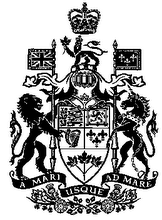


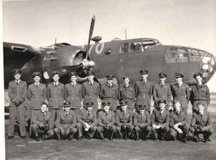

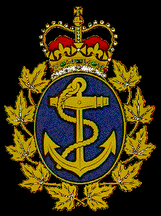




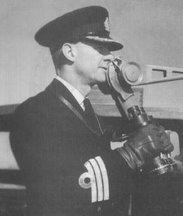
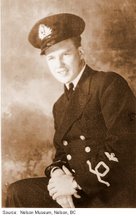


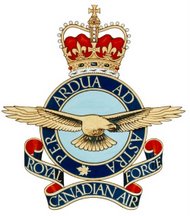
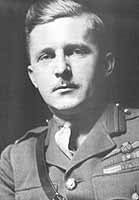
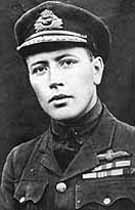
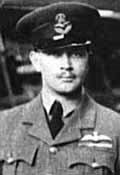








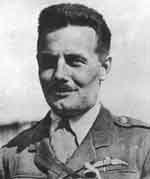


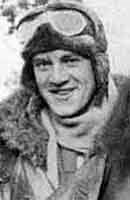
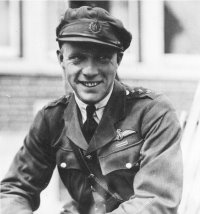


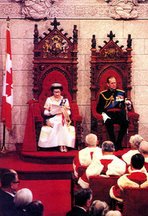
Greetings from Idaho! I'm bored to death at work so I decided to browse your blog on my iphone during lunch break. I enjoy the knowledge you provide here and can't wait to take a look when I get home.
ReplyDeleteI'm amazed at how quick your blog loaded on my cell phone .. I'm not even using WIFI, just 3G .
. Anyways, very good site!
my webpage - "how to write" lewis philips
you're truly a excellent webmaster. The web site loading speed is incredible. It kind of feels that you're doing any distinctive trick.
ReplyDeleteIn addition, The contents are masterwork.
you've performed a great activity on this topic!
My page: calories walking calculator